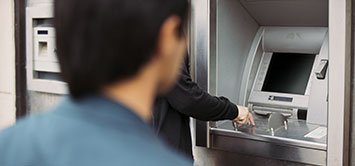Fraud Awareness
Fraud is a key threat and scams are ever evolving. Be scam aware and act quickly if you suspect you have been the victim of fraud. As a quick reminder:
Key Fraud Messages for Clients
Our 3 key messages are:
- Never disclose a One Time Passcode to someone over the phone.
- Always verbally confirm account information when paying a new beneficiary.
- Call your Relationship Manager or 020 7012 2500 immediately if you have any fraud related concerns.
What is a One Time Passcode (OTP)
An OTP is a is a randomly generated code used to authenticate an activity (e.g. login to online banking) or a transaction (e.g. online card payment). The code is specific to that activity or transaction. It is NEVER used to verify your identity over the phone or to cancel a transaction. Beware of fraudsters who try and trick you with social engineering to disclose your OTP.
Recognise the signs of social engineering
As banks continue to implement stronger controls to detect and prevent fraud, fraudsters are increasingly focusing their attacks on individuals. Social Engineering, the act of manipulating individuals in order to gain access to important and personal information, has been an ever-present element of fraud. The majority of modern fraud attacks we see either focus on obtaining OTPs in order to access online / mobile banking or authorise false payments, or, persuading victims themselves to make payments to accounts controlled by criminals.
There are 3 common traits that are likely to be present when someone is being socially engineered:
- Playing on your emotions – creating situations where you are fearful, guilty or curious are some examples.
- Creating a sense of urgency – people don’t always think clearly when placed under pressure.
- Developing trust – fraudsters will be very convincing usually because they have done their research.
If you are ever being pressured into making a decision related to your finances, follow the advice of Take Five (https://www.takefive-stopfraud.org.uk/) and Stop, Challenge, Protect.
New Check a Website Tool
Fraud Agency Cifas have partnered with GetSafeOnline and recently launched a facility to check a website address in order to get a trust score. The tool and more information can be found at: https://www.getsafeonline.org/checkawebsite/.
Note that the tool can only be used for web addresses and will not work for email addresses or links contained within messages.
Report a lost/stolen card or suspected fraud
If your card has been lost or stolen, or if you suspect fraudulent activity, call us straight away on +44 (0)20 7012 2900 (available 24 hours).
If you have misplaced your card and would like to temporarily freeze transactions on your card, you can do this through our cards app or by calling us on +44 (0)20 7012 2900.
For all other fraud, please contact us immediately on 020 7012 2500 (available 24 hours).

Different ways criminals contact victims
Criminals might try to contact you via phone, email, text message or in person.

Protecting yourself from investment fraud
Be vigilant of investments that seem too good to be true. Always do your research.

Protecting yourself from identity fraud
Criminals try to impersonate victims to steal money. You can protect yourself.

Debit & credit card fraud
Protecting your debit and credit card data is crucial in the fight against fraud.

Impersonation fraud and cloned firms
Fraudsters often impersonate others when trying to steal your money and data.

Romance scams
Fraudsters often start romantic relationships with victims in person of via dating apps and websites.

Payment redirection
Often affecting businesses, this is when a fraudster finds a way of changing payment details when paying invoices.

Cheque fraud
Make sure you don’t fall victim.
Becoming a client
Take control of your finances today by completing our enquiry form. Alternatively, you can call us on the number below and one of our team will be more than happy to talk about your future.
Brochures & email subscriptions
Request a brochure, or subscribe to our email updates
